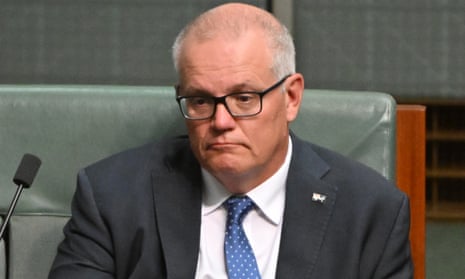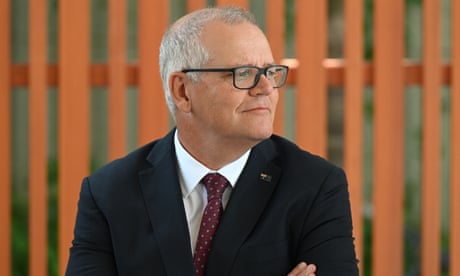
Those are the words of former high court justice, Virginia Bell, whose meticulous report lays waste to Morrison’s justifications for his break-glass-in-case-of-emergency powers.
Bell was able to pull it all together despite only perfunctory communication with Morrison through his lawyers – who mostly pointed to his public comments on the matter and added the improbable claim that he thought the ministries would be announced on the government gazette.
Bell found that “difficult to reconcile” with Morrison’s choice not to inform his ministers of the appointments because he didn’t want them to think he was second-guessing them.
The three further appointments – to the home affairs, treasury, industry science, energy and resources portfolios – “had little if any connection to the pandemic”.
So what were they about?
Bell found that Morrison was concerned about his ministers’ exercise of statutory power in cases that were not subject to cabinet oversight.
Such powers included the home affairs minister’s God-like powers of visa cancellation, the treasurer’s powers to block foreign takeovers, and the industry minister’s power to approve or kill off the PEP-11 gas project.
All these could be consolidated in Morrison’s hands using the trick learned at the start of the pandemic – to be sworn in to administer a colleague’s portfolio.
Bell said the personal appointment was an “exorbitant means” to address any potential conflict with a minister, because the prime minister could instead have dismissed any minister who he thought hadn’t acted in the public interest.
When it came to the PEP-11 decision about a permit to explore for gas off the coast of Newcastle, Morrison’s “evident disagreement” with the actual resources minister, Keith Pitt, was enough to ensure Pitt didn’t approve it in 2021.
“It speaks to Mr Morrison’s authority as prime minister and makes the decision to be secretly appointed to the additional departments of state bizarre.”
Bell made six recommendations, mostly ensuring every ministerial appointment or authorisation is printed in triplicate, letter-box dropped and shouted from every departmental rooftop in Canberra.
At the very least, secret ministerial appointments will not happen again.
Nobody knew until now that we needed a rule to stipulate that we should know who the home affairs minister(s) is/are – in much the same way nobody knew we needed a rule to stipulate an MP declaring receipt of funds from a blind trust is not good enough as a form of transparency, until Christian Porter told us unnamed benefactors part paid for his defamation legal fees.
Rules can be written and rewritten, but the ways to hack the system are countless.
The Albanese government has already had to correct the legal fiction that national cabinet is a subcommittee of the federal cabinet, and clarify that the prime minister cannot sit down with whomever they like and call it a cabinet meeting.
In the earliest press conferences after the revelation of the multiple ministries, Albanese raised that precedent of the “cabinet committee of one” as the start of the rot that ended in Morrison wearing so many hats. Both are about centralisation of power in one person’s hands.
Which brings us to the last question: what now for Morrison?
When the issue first dominated headlines the deputy prime minister, Richard Marles, warned there should be “severe political consequences”.
One consequence is that it has tarnished the legacy of a prime minister whose initial pandemic response was otherwise one of his better passages in office. His loyal former deputy, Josh Frydenberg, joined the pile-on on Friday, labelling the multiple ministries “extreme overreach”.
Albanese has said that Morrison misled parliament – a charge he repeated on Friday, refusing to rule out a censure motion when parliament returns.
Bell said Morrison’s scheme to duplicate ministerial powers “does not appear to have been closely thought through”. Albanese said his failure to front the inquiry shows he must “lack self-awareness”.
There’s probably no point hoping that Morrison will show contrition – he’s defended his intentions and his methods too many times for that.
'Corrosive of trust in government': PM addresses report on Morrison's secret ministries – video
In his latest statement, Morrison noted decisions “were taken during an extremely challenging period, where there was a need for considerable urgency” while criticisms “have been made after the event and with the benefit of this perspective”.
“I am pleased that this matter has now concluded.”
We’ll see – it will depend on whether Albanese will leave criticism of his predecessor’s “unprecedented and inexcusable” actions to a rhetorical slap on the wrist, or seek an external sanction as the only corrective on offer.

No comments:
Post a Comment